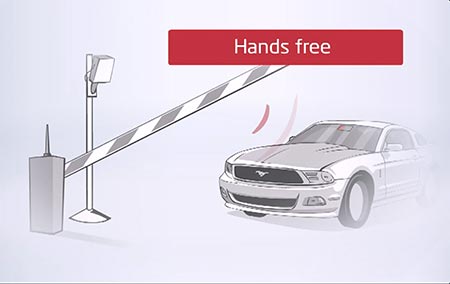RFID (Radio-Frequency Identification) on a car refers to a technology that uses electromagnetic fields to automatically identify and track tags attached to objects, in this case, vehicles. These tags contain electronically stored information that can be read remotely by RFID readers. In the automotive context, RFID technology can be used for various purposes such as:
Keyless Entry Systems: Many modern cars utilize RFID technology for keyless entry systems. The RFID tag is embedded within the key fob, and the car's onboard system recognizes the tag when it's within close proximity, allowing the driver to unlock or start the vehicle without physically inserting a key into the ignition.
Toll Collection: Some toll roads and bridges employ RFID tags in vehicles to enable automatic toll collection. As the vehicle passes through toll booths, the RFID reader scans the tag, and the toll fee is deducted from the driver's account electronically.
Vehicle Tracking: RFID can also be used for tracking vehicles in various scenarios such as fleet management, logistics, and security. By affixing RFID tags to vehicles, their movements can be monitored and recorded as they pass RFID readers installed at specific locations.
Inventory Management: In the automotive industry, RFID technology is used for tracking and managing inventory in manufacturing plants and warehouses. RFID tags can be attached to individual components or parts, allowing for efficient tracking throughout the production and supply chain processes.

Overall, RFID technology offers convenience, efficiency, and enhanced security in various aspects of automotive operations and management.
Prev News:Can my smartphone read RFID?
Next News:What is the cost of RFID car parking system?
